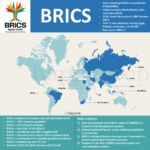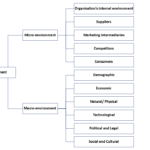Verbs in English
Verbs in English
Introduction
Verbs are one of the most important parts of speech in the English language. Every sentence needs a verb because verbs show actions, states, or conditions. Without verbs, sentences would not be complete.
For example:
- She runs fast. (The verb runs shows an action.)
- He is a doctor. (The verb is shows a state of being.)
This article will help students understand verbs, their types, and how to use them correctly in sentences.
What is a Verb?
A verb is a word that expresses an action, a state, or an occurrence in a sentence.
Examples of Verbs in Sentences:
- Action Verb: He writes a letter.
- State Verb: She feels happy.
- Occurrence Verb: It happens every year.
Types of Verbs
Verbs are classified into different types based on their function
Action Verbs (Doing Verbs)
Action verbs express a physical or mental action that a subject performs.
Examples in Sentences:
Physical Action:
- She jumps over the fence.
- They play football every evening.
Mental Action:
- I think you are right.
- She remembers the story.
Tip: If you can act it out, it’s an action verb!
Linking Verbs (State of Being Verbs)
Linking verbs do not show action; instead, they connect the subject to additional information. They describe a state or condition.
Common Linking Verbs:
- Forms of “to be”: am, is, are, was, were, be, been, being
- Sensory verbs: look, feel, taste, sound, smell
- Others: seem, become, remain, appear
Examples in Sentences:
- She is a doctor. (is links “she” to “doctor.”)
- The soup smells delicious.
- He became angry.
Helping Verbs (Auxiliary Verbs)
Helping verbs are used with main verbs to create different tenses, moods, and voices.
Common Helping Verbs:
- Primary Helping Verbs: be, have, do (used in forming tenses)
- Modal Helping Verbs: can, could, may, might, must, shall, should, will, would
Examples in Sentences:
- She is writing a book. (is helps the verb writing)
- They have finished their homework. (have helps the verb finished)
- You should study for the test. (should helps the verb study)
Transitive Verbs
Transitive verbs require an object to complete their meaning.
Examples in Sentences:
- He kicked the ball. (Object = the ball)
- She wrote a letter. (Object = a letter)
Intransitive Verbs
Intransitive verbs do not need an object.
Examples in Sentences:
- She sleeps peacefully. (No object)
- They run every morning. (No object)
Regular Verbs
Regular verbs follow a fixed pattern when changing to past tense (-ed is added).
Base Form | Past Form | Past Participle |
Walk | Walked | Walked |
Play | Played | Played |
Examples in Sentences:
- I walked to school yesterday.
- She played the piano beautifully
Irregular Verbs
Irregular verbs do not follow a fixed pattern in the past tense.
Base Form | Past Form | Past Participle |
Go | Went | Gone |
Eat | Ate | Eaten |
Examples in Sentences:
- He went to the park.
- I have eaten my lunch.
Causative Verbs
Causative verbs show that one person causes another person to do something. Instead of doing the action themselves, they make someone else do it.
Common Causative Verbs:
- Make → Forces someone to do something.
- Let → Allows someone to do something.
- Have → Gives someone responsibility for something.
- Get → Persuades or asks someone to do something.
- Help → Assists someone in doing something.
Examples in Sentences:
- The teacher made the students rewrite the essay. (Forced them to rewrite.)
- She let her brother use her laptop. (Allowed him to use it.)
- I had my car repaired. (Arranged for someone to repair it.)
- He got his friend to help with the project. (Persuaded his friend.)
- My mother helped me complete my homework. (Assisted me.)
Summary
Type | Purpose | Examples |
Action Verbs | Show physical or mental actions | Run, Think, Jump |
Linking Verbs | Connect the subject to information | Is, Seems, Becomes |
Helping Verbs | Support the main verb | Is running, has finished |
Transitive Verbs | Require an object | Read a book, Buy a car |
Intransitive Verbs | Do not need an object | Sleep, Cry, Arrive |
Regular Verbs | Form past tense with -ed | Walked, Played |
Irregular Verbs | Do not follow a fixed pattern | Went, Eaten |
Phrasal Verbs | Verb + preposition/adverb | Give up, Look after |
Causative Verbs | Make someone do something | Make, Let, Have, Get, Help |
Quick Links
Want to read some more articles?
-
 Shanghai Cooperation Organization (SCO): Origin, Members, Facts, etc for UPSC and other exams
Shanghai Cooperation Organization (SCO): Origin, Members, Facts, etc for UPSC and other exams -
 BRICS: Origin, members and others for UPSC, PSC & other exams
BRICS: Origin, members and others for UPSC, PSC & other exams -
 BIMSTEC for UPSC: Origin, Members & More
BIMSTEC for UPSC: Origin, Members & More -
 General Science for Competitive exams: UPSC, PSC, APFC, EO-AO, SSC, etc
General Science for Competitive exams: UPSC, PSC, APFC, EO-AO, SSC, etc -
 THE TRADE UNIONS ACT, 1926 for UPSC EPFO APFC/EO-AO, ALC, and Other exams
THE TRADE UNIONS ACT, 1926 for UPSC EPFO APFC/EO-AO, ALC, and Other exams -
 Understanding Macroenvironment: Marketing Environment in Principles of Marketing
Understanding Macroenvironment: Marketing Environment in Principles of Marketing -
 Understanding Microenvironment: Marketing Environment in Principles of Marketing
Understanding Microenvironment: Marketing Environment in Principles of Marketing -
Interjections in English
-
Conjunctions in English
Recruitment notifications update!
-
Recruitment 2025: Recruitment for Teaching Staff in The School of Planning and Architecture, New Delhi - Vacancy, Posts, Grade Pay, etc
-
Recruitment 2025: Vacancies in Inter-University Centre for Astronomy and Astrophysics (IUCAA)
-
Recruitment 2025: Recruitment on Deputation basis in National Anti Doping Agency (NADA)
-
Recruitment 2025: Various vacancies in Artificial Limbs Manufacturing Corporation of India (ALIMCO)
-
Recruitment 2025: Various vacancies in Land Ports Authority of India
Copyright© 2024 | All rights reserved | Made in India